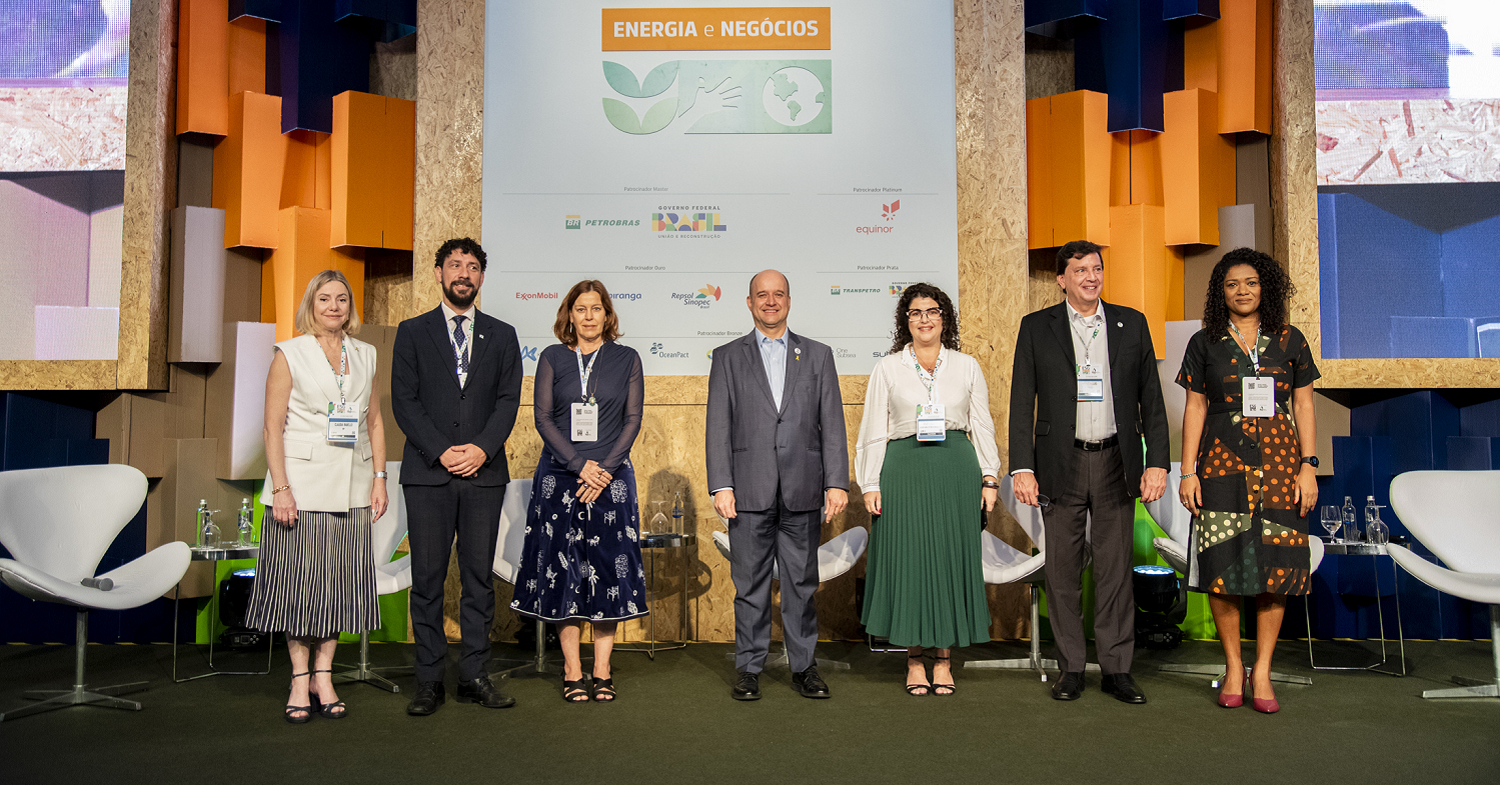Fair energy transition and decarbonization are the subjects of the opening session of ESG Energy and Business

At the launch of the ESG Energy and Business event, promoted by the Brazilian Oil and Gas Institute (IBP), the participants stressed that, to move forward on the ESG agenda, Brazil needs to make progress on environmental regulation, aim for a fair and inclusive energy transition, considering the country’s reality and development stage, and invest in decarbonization technologies. The latter are initiatives already underway in the oil and gas sector.
IBP president Roberto Ardenghy stressed that the “energy transition has to be balanced so as not to generate a scenario of energy poverty”. “It’s a process that must be fair and balanced so that we don’t exclude thousands of people, not just in Brazil, but in several countries. It’s not enough to import solutions that work in other countries.” The executive also highlighted industry actions in the field of new technologies to decarbonize its processes and that the ESG agenda is incorporated into the companies in the sector.
Floriano Pessaro, Director of Corporate Management at Apex Brasil, stressed that Brazil’s trade promotion and investment attraction policy considers the “diversity of energy sources” and encourages decarbonization initiatives through the use of innovation and technology, such as those in the oil and gas sector – which is developing carbon storage and capture projects, for example.
“Another important driver is the promotion of opportunities in the North and Northeast regions in line with the need for regional development and energy alternatives in these locations.” One of the alternatives in these regions is the exploration of oil and gas reserves in the Equatorial Margin.
The Secretary of State for the Environment and Sustainable Development of Goiás, Andréa Vulcanis, believes that the fair energy transition also depends on advances in environmental regulation to obtain faster licenses for sustainable development. “Over the last five years, we’ve worked together with the productive sectors and society to advance the regulations and, as a result, the deadline for some licenses has dropped from 7 years to 50 days.”
G20 and ESG
The Deputy Sub-Secretary for International Relations of the State of Rio de Janeiro, Bruno de Queiroz Costa, stressed that the G-20 summit and the preparatory meetings for the event of the leaders of the 20 main economies are an opportunity to highlight the ESG agenda. Brazil, as host, has chosen topics such as fighting climate change and poverty, as well as remodeling global governance, as priority subjects for the debates. “This opens up space to debate the energy transition and the need to reduce emissions, combined with social inclusion.”
Fair energy transition and emission reduction
Still on the subject of energy poverty, Raquel Coutinho, Decarbonization Manager for Petrobras’ Portfolio, Value Chain and Products, said, in the panel “The future of oil production and refining in Brazil and the concept of equity in the fair energy transition”, that the change must “bring, in addition to energy, the possibility for society to access this energy.”
Alexandre Szklo, a professor at COPPE/UFRJ, presented a study on the topic that shows ways to reduce emissions. “The productive sector has the potential to decarbonize even more and become a major absorber of greenhouse gases. In the study we showed Brazil’s potential to produce bioenergy in degraded areas,” said Szklo.
Ana Cupelo, sustainability leader at Equinor, stressed that the energy transition must be planned, with the need to invest in oil and gas projects, focusing on efficiency and expanding renewable energy projects. “We work on important pillars, such as absolute emissions reduction, renewable energy projects, as well as working with education and forest conservation,” she said.
Yuri Orse, director of the Renewables Chain at Acelen Renováveis, highlighted the opportunities for decarbonization in biofuels, which can generate jobs. “We believe in solutions such as green diesel and SAF (sustainable aviation fuel). We have projects recovering degraded land with family farmers, which, in addition to generating energy, lead to economic development and employment. We have 90,000 direct and indirect jobs generated by these projects,” he said.
According to Fernanda Britto, ESG & Climate Change Partner at ERM, the central actor in a fair transition must be the people. “Fair transition means putting people at the center of decisions. The model we work on also works by thinking about new businesses and the risks embedded in them. Measuring how the risks materialize for society.”
ESG Energy and Business runs until tomorrow, Tuesday, and is sponsored by Petrobras, Equinor, ExxonMobil, Ipiranga, RepsolSinopec, Shell, Transpetro, Karoon Energy, Naturgy, Ocean Pact, Ocyan, SLB One Subsea, Shape and Subsea7.